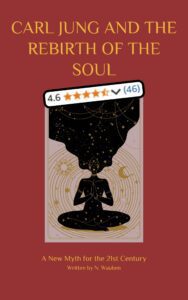Making a list of the most interesting modern philosophy books is not an easy endeavour. There exist almost too many interesting philosophy books, and the books which will make it on one’s top lists are of course subject to one’s own subjective experiences and the books which one has read so far. At the same time, one’s definition of a philosophy book might differ as well.
Personally, I like to refer to the definition of Thomas Carlyle, who defined philosophy by asking the following question: “What is Philosophy throughout but a continual battle against Custom; an ever-renewed effort to transcend the sphere of blind Custom, and so become Transcendental?” (Sartor Resartus, p.196) As a result, I consider the most interesting philosophy books to be those books which succeeded in challenging the ideas which were a part of the custom at the time when the books were written. Therefore, even though some books on this list might not be considered a traditional philosophy book, they might still be successful in presenting new and unique philosophical insights.
Moreover, this list is solely based on the books which I personally found to be the most interesting, as such it is not a list of the top 8 best or most influential books, but merely a list of the books which I personally found the most interesting. Please let me know in the comments which books you would have added or removed from this list.
Table of Contents
1: Friedrich Nietzsche – Thus Spoke Zarathustra
Friedrich Nietzsche was one of those philosophers who was willing to question everything and who certainly managed to ‘transcend the sphere of blind custom’. Nietzsche wrote a lot of interesting books, but I consider Thus Spoke Zarathustra to be Friedrich Nietzsche’s most interesting philosophy book.
Through his character Zarathustra, Nietzsche discussed many of his most interesting ideas and, as opposed to Nietzsche’s other books, Thus Spoke Zarathustra follows a certain chronological story line. Some of the most interesting philosophical ideas presented in Thus Spoke Zarathustra include Nietzsche’s idea of the eternal recurrence, the three metamorphoses of the spirit, and the death of God.
These ideas are presented to us through the character Zarathustra. Zarathustra is a hermit living in the mountains and, after a long period in solitude, Zarathustra descends from the mountains and is eager to share his wisdom with humanity. However, as it turns out, humanity is not waiting for Zarathustra’s wisdom, instead, they just want to be happy. This saddens Zarathustra, who believes that mankind is destined for greatness, severely. Personally I believe that, if you have never read Nietzsche before, Thus Spoke Zarathustra is a great place to start as well.
2: Thomas Carlyle – Sartor Resartus
Sartor Resartus, published in 1836, is a rather strange and complicated book. The book depicts the story of a character called The Editor. Throughout the book, the Editor discusses another book, which was written by a fictional character called Teufelsdröckh. It is through this character that Thomas Carlyle presents his unique philosophy to us.
I believe that Sartor Resartus is an extremely interesting book because it was ahead of its time in a philosophical sense and because it had a major influence on future philosophers. Sartor Resartus can be considered one of the pioneering works of existentialist philosophy. The book depicts the sense of meaninglessness which the character Teufelsdröckh experiences. However, after rejecting almost every form of meaning and developing a rather negative attitude towards live, Teufelsdröckh goes through a transformation culminating in a different attitude: the ‘Everlasting Yes’: “Thus had the everlasting no pealed authoritatively through all the recesses of my Being, of my Me; and then it was it that my whole Me stood up, in native God-created majesty, and with an emphasis recorded its Protest.” (p.129)
It is interesting to follow this transformation in the attitude towards life of the character, a transformation during which many philosophical insights are presented. It is a personal transformation, but it might be recognizable and inspirational for everyone who reads Sartor Resartus.
3: Ernest Becker – The Denial of Death
Ernests Becker’s book The Denial of Death is not one of the most pleasant books to read. It is quite a confrontational book, prompting its reader to question many of the things which he or she takes for granted.
According to Ernest Becker, man is in a constant search for a certain amount of self-worth. In essence, as argued by Becker, everyone wants to be a hero, however, no one openly admits to this fact. In the past this was not such a problem, according to Becker, because it was a lot easier to acquire a certain amount of self-worth in a small primitive society. However, according to Becker, in our modern age, this is a much bigger, almost impossible challenge. This book prompts its reader to question almost everything one does, by arguing that almost everything we do is done in order to create something of lasting value, thereby attempting to escape our mortality, and denying the fact that we are all going to die.
4: Henry David Thoreau – Walden
Walden is a unique and extremely interesting book based on the real-life experience of Henry David Thoreau. Thoreau decided to remove himself from society and went to live in the woods for over two years. Throughout Walden, Thoreau shared this experience with us and discussed all the interesting philosophical insights which he acquired during this period.
Thoreau came to dislike the materialistic society in which he had been living and became a strong proponent of simplicity. In this way we might recognize stoicism in Thoreau’s philosophy. Walden is not the easiest book to read; interesting philosophical insights are followed by long discussions on how to grow beans, for example. However, if one manages to get through the book, the insights can be life changing.
5: Carl Jung – The Red Book
Although Carl Jung did not consider himself to be a philosopher, I still believe that Jung’s Red Book belongs on this list since it definitely succeeds in its ability to break blind customs. The background to The Red Book is a unique story on its own. Even though The Red Book is now considered to be one of Carl Jung’s’ most important works, it was not accessible to the general public until 2009. Adding to the mystery, it has been argued by a few critics that Carl Jung was having a psychosis during the time that he was writing The Red Book.
Throughout The Red Book, Carl Jung is going on a unique adventure. He is not travelling to a different country or going to climb a mountain, instead he is going on an adventure within his own soul. He confronts his unconscious and from the insights which he finds, he destroys and recreates his own life. It is through this process, which Jung documented throughout the Red Book, that Jung developed his most important ideas. By reading the Red Book, we can also learn a lot about our own unconscious.
In case you are interested in Jung’s ideas in general, then you might also enjoy reading my own book, Carl Jung and the Rebirth of the soul, which discusses and analyses a lot of the content of the Red Book.
6: Arhtur Schopenhaur – The World as Will and Idea
In his book The World as Will and Idea, Arthur Schopenhauer elaborately explained his philosophy. According to Schopenhauer, the world that we observe exists only in our brains i.e., the objective world is created through our subjective world. Schopenhauer argued that this ‘truth’ is the most definite of all.
Moreover, Arthur Schopenhauer questioned whether the world would even exist if there were no subjects to perceive it, because, as far as we can tell, according to Schopenhauer, the world exists only in our brains: “For this perceptible and real world is clearly a phenomenon of the brain; hence there is a contradiction in the assumption that as such it ought also to exist independently of all brains.“ (p.14)
The World as Will and Idea is therefore not one of the most cheerful books to read, however, it does provide its reader with unique philosophical insights.
7: Albert Camus – The Myth of Sisyphus
The Myth of Sisyphus is a book written in 1942 by the French author and philosopher Albert Camus. Despite its small size (only 134 pages), it is full of interesting ideas (some might argue horrifying ideas). Albert Camus is one of the most important contributors to absurdist philosophy. Absurdism is a rather scary philosophy. Its proponents fundamentally argue that life does not have an inherent meaning and that any attempts at finding meaning are doomed to fail in the end. This does not sound overly optimistic, however, in my opinion, the Myth of Sisyphus ends on a rather optimistic note, whereby it is argued that the fundamental lack of meaning of our existence can, in fac,t be a valuable source of meaning: “The absurd man thus catches sight of a burning and frigid, transparent and limited universe in which nothing is possible, but everything is given, and beyond which all is collapse and nothingness. He can then decide to accept such a universe and draw from it his strength, his refusal to hope, and the unyielding evidence of a life without consolation.” (p.58)
8: Viktor Frankl – Man’s Search for Meaning
In his book Man’s Search for Meaning, Holocaust survivor Viktor Frankl shared the horrible experiences which he underwent during his imprisonment in various concentration camps during the Second World War. At the same time, Frankl shared his philosophical ideas, which he believed helped him make it through this horrible situation. Frankl wrote, for example: “We had to learn ourselves and, furthermore, we had to teach the despairing men, that it did not really matter what we expected from life, but rather what life expected from us.” (p.85)
Man’s Search for Meaning, despite its subject, is relatively easy to read and understand. Its philosophical contents are equally easy to grasp, and I believe that Viktor Frankl’s philosophy will gain in importance during the coming years.

